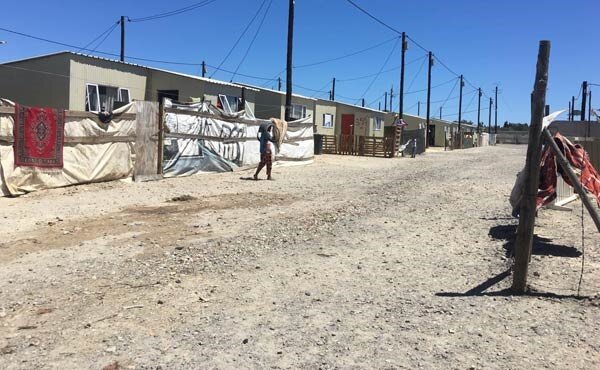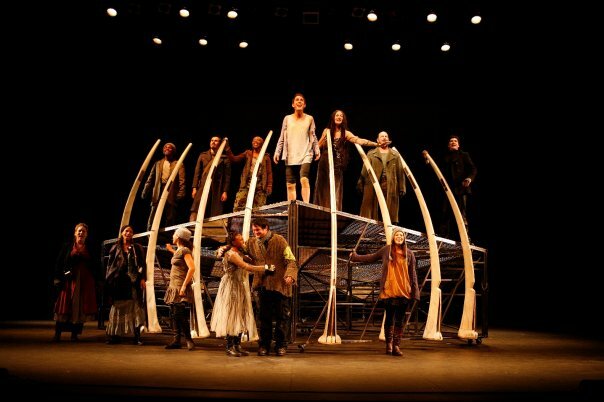I got a comment yesterday on my 2017 post about how Cape Town is racist, almost exactly a year after having written it, confirming that nothing has changed. It is bizarre and surreal to me.
One of the few really integrated spaces in Cape Town is Muizenberg beach. And it is one of the few places I feel totally at home at and my most true self. It is a multicoloured, multi-aged, multi-language space where when it’s crowded you sit cheek by jowl with rich and poor, young and old and every shade of human skin. It is what is possible.
Kalk Bay on the other hand is a segregated space with black people serving almost exclusively white customers. It’s frightening, especially since the whiteness of the space seems so ‘normal’ to those wandering up and down the streets and seated at the restaurants, bars and coffee shops.
I know I am super aware of these things, but everyone should be. Everyone should notice.
I went with my brother to a spot on Moullie Point’s strip on Friday evening. A friend was playing background music at sundowner time. I was so relieved to see a mixed crowd of middle class jollers there, with kids and dogs added to the mix. I felt like I could breathe a bit. Of course the staff was totally black and mostly Zimbabwean, but at least the patrons were not wall to wall white.
We hung out there for long enough that the people around us changed, and a white and wide couple took up a spot just next to us. And my brother had a moment when the woman, without even looking up at the server when she brought their piled high plates of food, said, “We are going to need more plates.” Not thank you, not please, not when you have a moment. My brother said, “What’s wrong with people? How can anyone be that rude to someone else?”
This woman was unconscious. She didn’t even realise that she was talking to a person. My brother rightly pointed out that nobody needs extra plates. What was happening here was the language of privilege, demand, taking up space and superiority. This woman didn’t even know she was being rude. Just like so many white people don’t even know they are being racist and will deny it and be offended if you point it out.
The truth is, if you are white in Cape Town it is entirely possible to live the old white lifestyle, and many people do. These people moan about a government that has little or no effect on them personally (unless they are complaining about the exchange rate), they have access to cheap labour and private transport, and are fortunate enough to have a buffer zone of the coloured middle class to shield them from the real poor and disenfranchised communities they have no direct contact with except for those that clean their houses.
In Cape Town there are still entirely white neighbourhoods. In Cape Town the white voice is loud. In Cape Town it is entirely possible to sit in a restaurant with only white patrons. In Cape Town you can be an audience of only white skins. And this is mad, hideous, unacceptable but totally true.

 I eavesdropped on a casual conversation between two white Woodstock residents who were ignoring their dogs’ poo in the park. They were ‘ventilating’ the notion of social and affordable housing in Woodstock and they were kinda whinging about why Woodstock had to ‘get social housing’. ‘Why them, where they live and have recently spent a total and absolute fortune on their newly revamped old Victorians or built from scratch mixed development apartments?’ is what I think they were getting at. And I thought about the people, mainly tenants, who had had to make way for these revamps, and those who had been evicted to make way for the snazzy developments that show only white people in their artists’ impressions. What interested me more than their ignorance and short memories was that they saw absolutely no irony in the fact that Woodstock had been a social housing and affordable option up until they had moved here.
I eavesdropped on a casual conversation between two white Woodstock residents who were ignoring their dogs’ poo in the park. They were ‘ventilating’ the notion of social and affordable housing in Woodstock and they were kinda whinging about why Woodstock had to ‘get social housing’. ‘Why them, where they live and have recently spent a total and absolute fortune on their newly revamped old Victorians or built from scratch mixed development apartments?’ is what I think they were getting at. And I thought about the people, mainly tenants, who had had to make way for these revamps, and those who had been evicted to make way for the snazzy developments that show only white people in their artists’ impressions. What interested me more than their ignorance and short memories was that they saw absolutely no irony in the fact that Woodstock had been a social housing and affordable option up until they had moved here.
